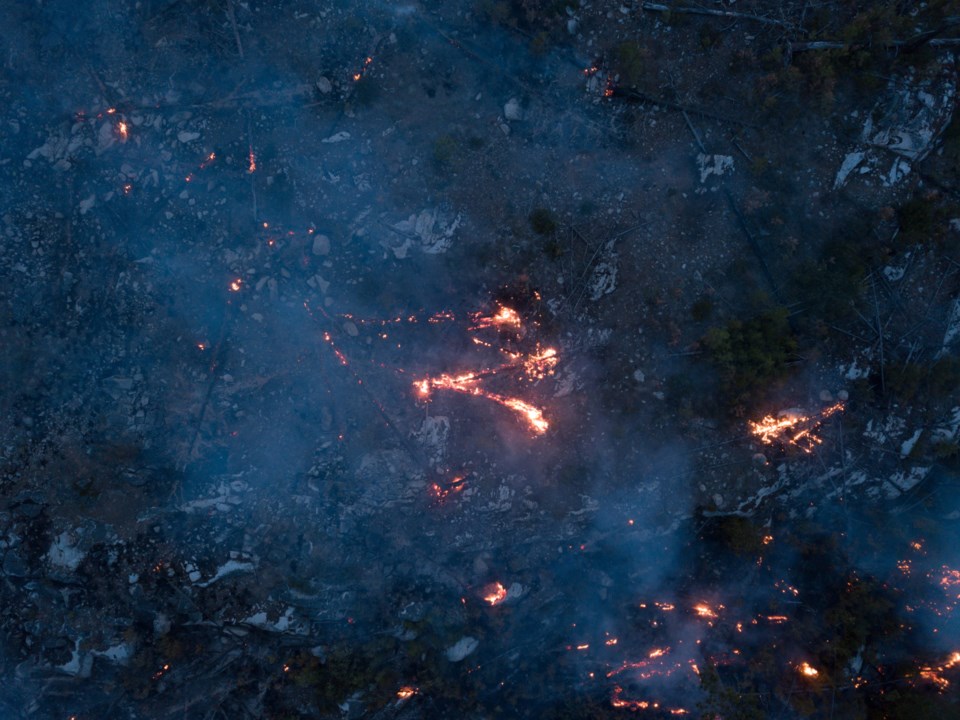With detailed planning well underway for the 2020 forest fire season, a critical part of that process is securing and training more than 1,000 ground level firefighters. These are the men and women you almost never see on TV or hear on the radio, but are described by their peers as the most critical part of the firefighting team.
“People see the aircraft over a fire, but it’s important to remember the crews on the ground who are doing the hard work,” notes Brandi Burns, Safety and Staff Development Coordinator for the Coastal Fire Centre.
Throughout this month, Burns and her BCWS colleagues will review approximately 1,100 applications as part of the process to hire 200 new firefighters. In April and May, they will be put through the rigours of firefighter “boot camp” staged annually in Merritt.
“There is definitely an element of fitness and being in good shape,” warns Burns who admits that at 5’3” and 120 pounds, she found firefighting training difficult herself.
However, Burns also stresses that while physical demands are critical, firefighters must also be mentally strong; the pressure-packed work is often demanding, exhausting, dirty, and dangerous. But while a firefighter’s working conditions are among the most difficult imaginable, Burns is quick to point out that the Wildfire Service has a very low rate of injuries:
“We have a very strong safety culture.”
A former crew member, Burns urges the men and women to come prepared and have a clear understanding of the position they are applying for. In the heat of a busy fire season, ground crews can work 12 to 14 hours per day – for 14 days straight.
“Arguably, it’s the most important job,” says Burns.
From her own experience as a firefighter, Burns recalls the devastating 2017 Elephant Hill wildfire near Cache Creek.
“Just the conditions, it was very hot, very dry and a very active and unpredictable.”
The Elephant Hill blaze roared to life on July 6, 2017 and was BC’s largest wildfire during the first of two straight record wildfire seasons. While scarring 192,000 hectares of forest and brush, the Elephant Hill inferno destroyed 120 homes in the small communities of Boston Flats, Loon Lake, and Pressy Lake, and forced the entire evacuation of Cache Creek and Clinton.
Asked what she would like British Columbians to know about ground-level wildfire fighters, Burns didn’t hesitate to offer the following description of her unseen colleagues who she contends are heroes:
“We hire people of all shapes and sizes; people with diverse backgrounds, educations and interests. The best firefighters aren’t just big and strong, they are also small and strong, smart and strong, quiet and strong, funny and strong. And strength is more about the mental aspect of the word than the typical physical connotations of the word.
The people working on the ground during fire season put their lives on hold for four to six months every year to be of service to their communities. They are working in difficult, complex and dynamic environments and are often spending most of their summers in camps away from loved ones.
“What I want people to know about ground level firefighters is they are professional firefighters that are always striving to do better and make a difference.”
As always, I welcome your comments and criticism on Twitter @kammornanchor and email [email protected].
Bob Price is a veteran B.C. broadcaster who anchored the morning news on CHNL radio in Kamloops for the past 30 years. Bob is also a past Webster Award winner whose previous stops included Vancouver and Calgary.
SWIM ON:
- Last summer, Bob Price looked at the brave men and women who fight fires from the air. Must-read stuff.
- Mark Milke: The most potent weapon against disaster is a prosperous society.
- About two weeks away from the 2020 provincial budget, it's a fine time to re-read Maclean Kay's first look at the 2019 budget.



